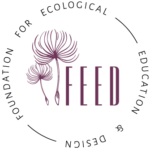Mission
FEED – Foundation for Ecological Education and Design is a grass-roots initiative based in Kalavan Village.
FEED’s mission is to develop and promote practices that equip Armenians to produce food for themselves and live in a way that restores and enhances soils, ecosystems, culture, communities, and local economies.
FEED strives to operate as an education, demonstration, and research site, offering focused, hands-on learning experiences grounded in permaculture principles, scientific methodology, and design thinking.
Vision
- Create and support a community of interconnected educators, designers, and practitioners across Armenia that specialize in permaculture design, ecological design, and regenerative agriculture.
- Design and deliver tailored education programs that are relevant and accessible to individuals, groups, farmers, and communities across Armenia.
- Offer regenerative design services applying permaculture and ecological principles.
- Identify traditional knowledge across Armenia in the areas of food growing, processing, and preparation as well as homesteading skills, and record, teach, and promote this knowledge as a means of cultural heritage preservation and income generation for locals.
- Develop locally focused and produced education and training resources in Eastern Armenian.
- Connect individuals and businesses to appropriate information and services that will support them to start, formalize, and grow profitable regenerative enterprises.
- Develop a permaculture-inspired community education, ecological research, and demonstration facility “Mer Tun: Sustainability Education Center” housed on the 3151-square meter (0.78 acre) homestead in Kalavan, Armenia. This educational site would:
- demonstrate the practical application of permaculture design, operating as an international permaculture Learning and Demonstration (iLAND) Center certified through the International Permaculture Education Network (IPEN);
- host local and international speakers, short-courses, and residential courses for Armenians and international visitors;
- offer a model for regenerative and ecological design and sustainable living practices applicable to and replicable for Armenians;
- operate as a home-scale food-forest, providing hands-on experiences working with developing food systems;
- act as a living laboratory by researching and testing strategies, techniques, and plants that are culturally acceptable and environmentally suitable for the climate and ecology;
- implement appropriate technologies which require low capital investment.
The Mer Tun site will include a library, commercial-grade kitchen, education spaces, a workshed for building projects, and resources available for community use. Locals would be able to process local foods for sale and use the community work shed for local building and agricultural projects. The space would offer an opportunity for experimentation and education in Armenia while improving the economic wellbeing of Kalavan through increased eco-tourism.
- Facilitate the evolution of Kalavan into an eco-village with the support of the Global Eco-Village Network (GEN). Co-designed with local enterprises, organizations, community members, GEN and the FEED team, the eco-village will feature a village-scale agro-forestry system aimed at increasing the food-security and economic wellbeing of Kalavan.
